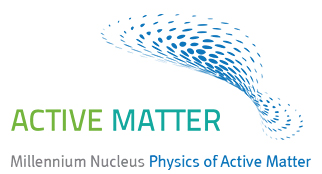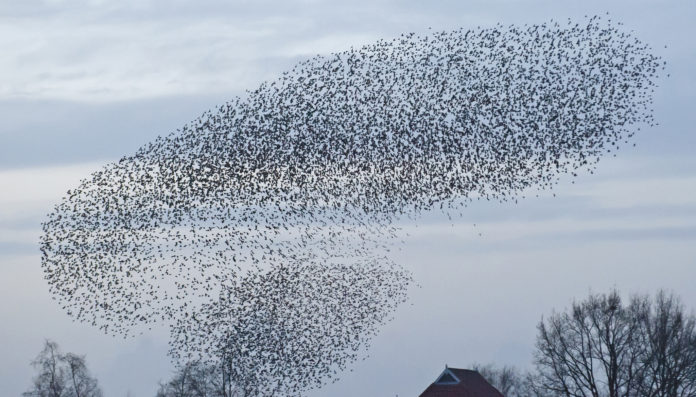* Invited by the Millennium Nucleus Physics of Active Matter, Alexandre Solon, an expert in thermodynamics of these systems, will hold talks, technical courses and will talk with physics students.
Active matter is the new paradigm of current physics and solving its questions promises to generate a real “new industrial revolution.”
By active matter, we refer to all those systems composed of many biological or artificial elements that seem to move as a unit, in a synchronic and organized way, and where each individual has the ability to extract energy from the environment to generate movement or self-propel. That is to say that in these systems each of their individuals can act as a mini-motor, which places these structures in conditions very far from thermodynamic equilibrium. Examples of these structures are flocks of birds, schools, suspensions of bacteria or the cytoskeleton within a cell.
For all these systems, the tools of thermodynamics and statistical mechanics have no use.
Alex Solon, Ph.D. and Master in Theoretical Physics at Université Paris Diderot, France and current postdoctoral fellow in the Department of Physics of the Massachusetts Institute of Technology (MIT) is an expert in biophysics and out of balance statistical mechanics theory and, currently, he is working on the search for a thermodynamic theory of active matter.
But is it possible to make a thermodynamic theory of these systems? That is the question that many physicists of the world are asking nowadays and Alex Solon will discuss in two activities next week when he visits Chile invited by the Millennium Nucleus Physics of Active Matter. The expert will also make time on his agenda so that students and researchers can talk with him, expose their work or discuss some issues.
Rodrigo Soto, Director of the Millennium Nucleus Physics of Active Matter indicates that Solon’s work is very important since it seeks to find the laws that govern the active matter, such as the suspensions of bacteria, for example. “If we know these laws we can manipulate them and generate micromachines in which they are the engines,” he says.
Activities
Tuesday, November 27th, at 10:00 a.m. Technical Seminar for the Nucleus, open to students and researchers of Physics of the country, which will be held in the Matter Outside the Equilibrium Laboratory, underground of the Department of Physics (Beauchef 850).
Wednesday, November 28th, at 12:00 p.m. Class on Thermodynamics of Active Matter for students and physics researchers. (Beauchef 850, room F12).
More information about Alexander Solon: https://scholar.google.com/citations?user=YFsYIxwAAAAJ&hl=es


